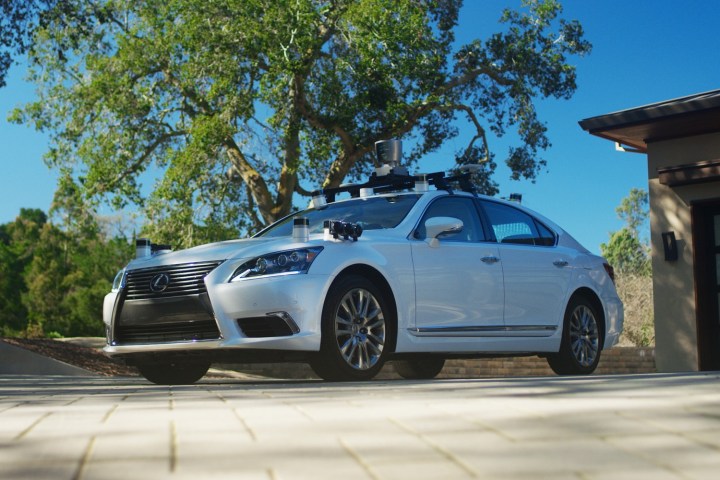
Toyota will bring a fleet of autonomous cars to the Japanese games, Ken Koibuchi,the automaker’s general manager for autonomous tech, told Automotive News during a preview of the 2018 Lexus LS. Toyota is a major Olympic sponsor and Japan’s largest automaker, and believes the Olympics will be an important venue for showcasing new technology.
Executives believe the Odaiba waterfront area of Tokyo, where many of the Olympic venues will be, is ideally suited to demonstrations of self-driving cars. Unlike most of Tokyo, which is made up of narrow, winding streets, the Odaiba waterfront features wide, straight streets and relatively light traffic.
While it has kept a lower profile than other automakers, Toyota does plan to launch fully autonomous cars in the near future. It’s also taking a slightly different approach than the competition. Toyota prefers not to use the term “autonomous,” since it may instill false confidence in drivers, Koibuchi told Automotive News. Instead, it prefers the term “automated.”
Toyota seems less eager to take human drivers completely out of the equation. Its “Mobility Teammate Concept” envisions the car as a partner for the human driver, rather than a replacement. Toyota is also emphasizing autonomous driving for people who can’t drive on their own, such as the elderly or disabled.
Some technical hurdles must still be cleared before self-driving cars can go into production. First, Toyota must adapt lidar for use in its production vehicles. Lidar, which operates on a similar principal to radar but using light instead of radio waves, is a fixture on most prototype autonomous cars. But getting costs down and packaging the sensors in a production cars will still be challenging.
Self-driving cars will also need high-quality digital maps, Koibuchi said. The Japanese government is trying to map the country’s road network, but so far, only a portion of Japan’s highways have been mapped. Koibuchi believes the entire highway network will be mapped in time for the 2020 Olympics, but noted that surface streets “are a huge task.”


